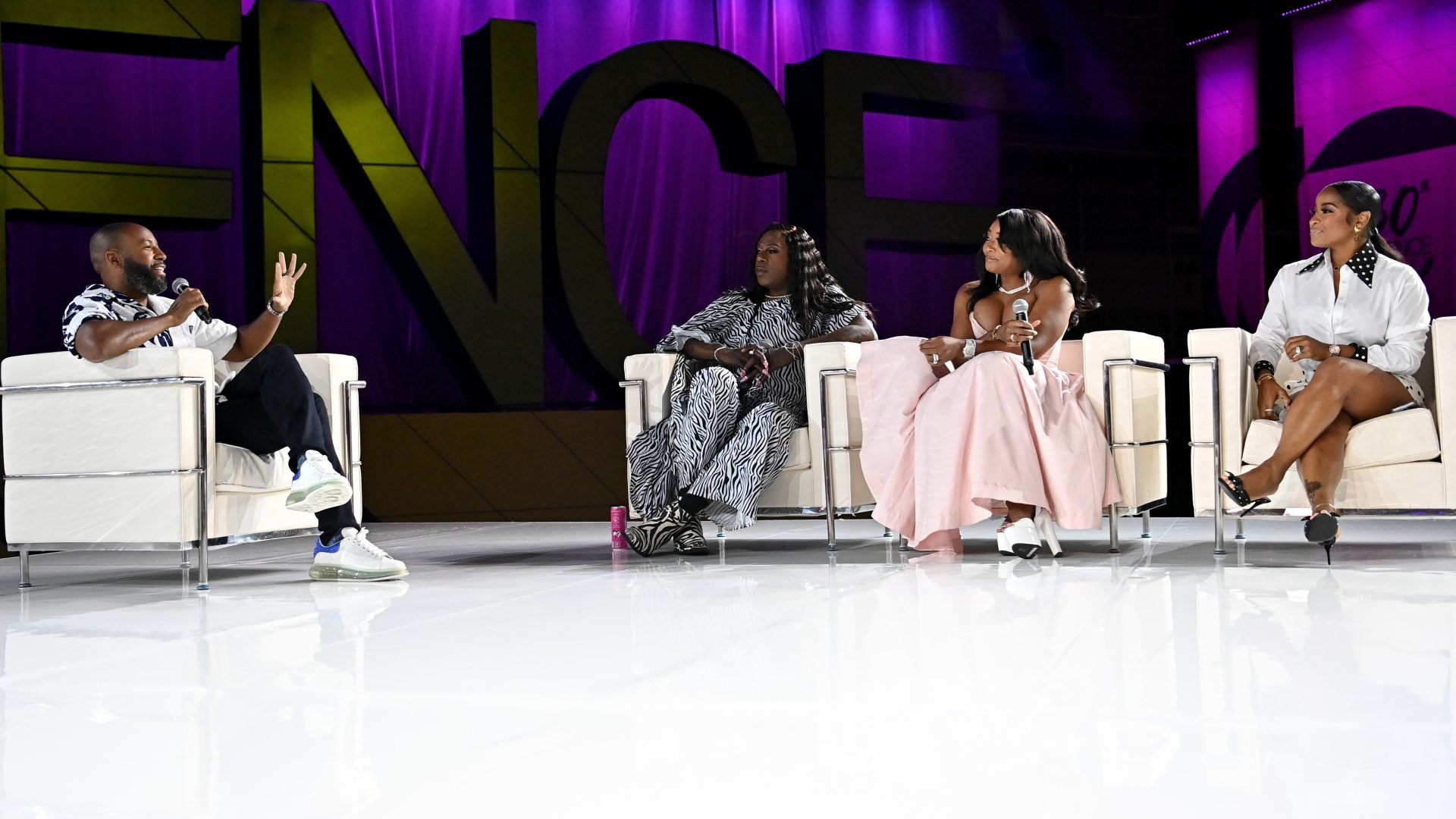
Reality television has become a guilty pleasure for people worldwide. From Run’s House to The Real Housewives of Atlanta, fans love to learn more about some of their favorite celebrities and get all the deets of their personal and professional lives.
While this kind of television is thoroughly entertaining, what we see on-screen may not reflect what goes on behind the scenes. The stars of these shows are still human and go through ups and downs like their loyal viewers.
To truly understand what it is like to put their lives in the public eye, it is important to be transparent and hear from the people themselves what the experience is truly like. On the ESSENCE Main Stage, festival goers could do just that. We heard from reality TV stars Toya Johnson-Rushing, Yandy Smith-Harris, Big Freedia, and the king of reality TV himself, producer Carlos King, about the truth of living life in front of the camera, managing their careers, the buying power of choosing what to watch, and more.
King: Before television, Yandy was behind the scenes—a music mogul, managing Jim Jones and working on developing artists. And then, she became a reality star and shut it down. What was that transition from being behind the scenes to being in front of the camera?
Smith-Harris: The hardest thing for me was transitioning as far as my look. I’m not the hair and makeup girl. So, stepping up and trying to keep up with people who look like this was hard for me. I was used to being behind the scenes, working with Jimmy, I worked with 50, I worked with Busta, I worked with Missy, and I was ripping and running.
So even when I was in production for the TV show, I was in sweats or jeans and flats all day. So when they said, we think you should be on camera. I was like, what? No. Because I was like, all this glam and hair and makeup, I don’t want it. So now, having to move around with a glam team and try to look the part, it’s hard.
King: Reality TV is a really great vehicle to promote your businesses and your brand and get stuff out there. But there’s also the dark side to reality television, where people feel like they know you. So, Toya, what was it like for you when it came to doing reality? What was the hardest thing that you had to cope with in your years of being in the drama?
Johnson-Rushing: I would say the hardest thing for me was being in my previous relationship when I decided to do reality TV. I went through all of that, my breakup, and everything publicly. I’m human. We all are human. Everybody goes through things. And it’s just that mine is just showcased on a television show, leaving room for everybody to judge. I can’t get mad about it, but sometimes people tell us, ‘You’re dumb,’ ‘You’re weak.’ You’re just like, ‘Girl, I’m sure you have been through way worse situations.’ It’s just that mine is broadcast. So, we all make mistakes in life. We go through things. We learn from them. We move on to bigger and better things. It’s just a part of life’s experiences.
King: Freedia, what’s your experience? Because your show was really just all about you. So, did you have a different experience, unlike the other ladies on the stage who were part of an ensemble show at one point?
Big Freedia: My relationship with the show was different, and I could just show the things my partner and I went through. We had some ups and downs throughout the TV show, no doubt. Starting with season one, I was just a baby. I didn’t know anything about TV. Opening myself up and opening my family up for the world to see was such a big change for me.
But as the seasons kept on going, I would get better and say, this is how I need to put this in perspective. This is how I need to put this out, and I want to make sure that I protect my brand, my family, and the cast members that are on the show. Because, at the end of the day, it represents my name and who I am.
King: Now we see that, obviously, the world’s evolving. When the world evolves, that means every genre in this business evolves too. Where do you see the future of reality TV going?
Johnson-Rushing: What I would want is more entrepreneurial stuff and more positive stuff. But, unfortunately, we live in a time when people are attracted to negativity. It’s like the fighting, the rah-rah, it’s more entertaining. If you produce a show based on building women up or hustling or teaching women how to get to the bank, showing us that we’re better, it’s better to collaborate than to compete, like real boss-type stuff, that’s considered boring. That doesn’t get the ratings that the rah-rah shows get. We have to change that narrative. But if you’re not tuning in and they’re not making the money, those types of shows won’t see the light. So you’re going to get the baddies, pulling hairs, and the crazy rah-rah shows. I have nothing against those shows to each his own, but I would like to see building sisters up.
Stay tuned for what is next for these notable celebrities and support their careers as they continue to thrive. Big Freedia and Johnson Rushing are gearing up for Season 2 of their receptive shows, and Smith Harris is going strong with her business ventures.